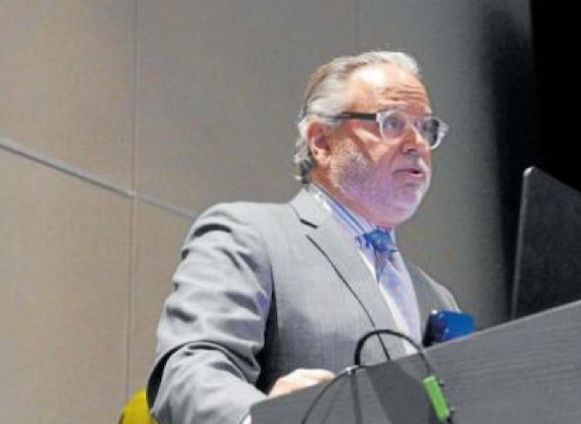Washington, D.C. – In remarks delivered at the JP Morgan Conference during the IMF/World Bank spring meetings, Leopoldo Martinez, policy expert, President of the Center for Democracy and Development in the Americas (CDDA), and former Counselor at the U.S. Department of Commerce under President Biden, warned that Venezuela stands at a critical turning point. The country is mired in political paralysis, facing deepening economic collapse, and at risk of solidifying a strategic realignment with China if U.S. policy defaults to extreme pressure.

Martinez stressed that there is no viable path to the presidency for Edmundo González Urrutia, despite his clear victory in the fraud-tainted July 28, 2024 presidential election, backed by opposition leader María Corina Machado. Venezuela’s military and ruling structure remains unified in rejecting any opposition-led transition based on the 2024 vote.
“The regime perceives the opposition as operating under a winner-takes-all mindset, which is also their approach,” Martinez said. “There is no pathway, no negotiation space. The military is aligned against a transition they view as closed to cohabitation, amnesty, or power-sharing—perhaps to any form of transition not led by themselves. And while their full loyalty to Maduro is uncertain, the system remains tightly closed.”
Martinez also emphasized that economic pressures on the Maduro regime are escalating, especially after the reversal of U.S. sanctions relief in the energy sector and the introduction of secondary tariffs on buyers of Venezuelan oil. Citing polling data, he noted that inflation and the cost of living remain the dominant public concerns, with over 65% of Venezuelans prioritizing economic stability over political reform.
While Maduro’s approval rating sits at a historic low of just 22%, Martinez warned that time is not on the opposition’s side either. Public trust in both María Corina Machado and Edmundo González is eroding, and political disengagement is growing, with 61% of Venezuelans identifying with no political party.
“This is a dangerous stalemate,” Martinez cautioned. “Maduro is increasingly isolated and vulnerable, but the opposition’s momentum is also fading. The longer this impasse persists, the more the public loses faith in all institutions and opposition leaders as well”.
Martinez characterized the upcoming May 2025 parliamentary and regional elections as a “non-event” for meaningful political change. With the opposition divided between those advocating boycott and those opting to participate, the elections are broadly perceived as managed and non-competitive.
“The significance of these elections lies not in their outcome, but in what they reveal about the evolving internal power dynamics within Chavismo,” Martinez noted. “We may begin to see the emergence of factions positioning for a post-Maduro future.”
He outlined two plausible scenarios for Venezuela’s political trajectory:
1. An internal shift within Chavismo, driven by mounting economic pressure and elite fragmentation; or
2. A Chinese financial lifeline that reinforces Maduro’s hold on power and accelerates Venezuela’s isolation from the West.
Martinez urged U.S. policymakers to reject both the extreme pressure favored by some and the transactional diplomacy of others. Instead, he called for a principled yet pragmatic strategy that encourages reformist elements within the regime while maintaining firm democratic standards.
“It is not in the interest of the United States’ national security to generate further instability in Venezuela,” Martinez warned. “Nor is it strategically sound to retract from all forms of constructive economic and diplomatic engagement, especially when doing so only creates openings for authoritarian influence from China or Russia.”
He also delivered a pointed critique of the Trump administration’s contradictory and punitive approach to Venezuela, particularly regarding immigration.
“Between the conflicting positions of Secretary Rubio—who advocates uncompromising pressure—and Special Envoy Ric Grenell’s earlier transactional model, the only consistent policy has been the inhumane treatment of Venezuelan migrants,” Martinez said. “We are witnessing efforts to execute massive deportations or pursue policies designed to induce self-deportation of a community that has significantly contributed to the fabric of the United States.”
He added that this approach is being justified with unfounded claims of widespread criminality among Venezuelan migrants, notably linked to the Tren de Aragua gang—a narrative that has been debunked by 17 of 18 U.S. intelligence agencies, as revealed in recent congressional oversight findings.
